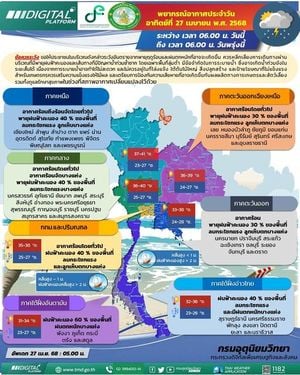Dr. Mehmet Oz, the well-known television personality and physician, has been nominated by President-elect Donald Trump to serve as the administrator of the Centers for Medicare and Medicaid Services (CMS). This nomination has sparked considerable debate, reflecting broader concerns about healthcare leadership and expertise.
Oz, whose rise to fame began with appearances on The Oprah Winfrey Show and continued with his own medical talk show, has enjoyed both success and scrutiny throughout his career. According to reports, he boasts a net worth estimated between $100 million and $315 million, largely accrued from various projects including books, television, and his involvement with health-focused companies.
Born to Turkish immigrants, Oz graduated from Harvard University and earned his medical degree from the University of Pennsylvania. He has had an extensive career, launching the Cardiovascular Institute and contributing to innovations such as the MitraClip device used for heart surgery. Despite his impressive credentials, Oz's public persona has been marred by controversies surrounding his medical advice.
Critics have raised concerns over Oz's promotion of certain treatments deemed questionable. For example, he faced backlash for advocating the use of hydroxychloroquine during the COVID-19 pandemic. The British Medical Journal analyzed various episodes of his show and found only 46% of his recommendations were supported by scientific evidence, calling his medical advice seriously flawed.
Nevertheless, some supporters believe Oz’s medical experience can be beneficial for CMS, especially as the agency works to negotiate drug prices for Medicare recipients—which is seen as one of the administration’s healthcare priorities. The potential impact of Oz's leadership on millions of patients is notable, as CMS oversees programs like Medicare, Medicaid, and the Children’s Health Insurance Program.
There is significant public interest surrounding Oz's nomination, raising questions about his ability to balance celebrity with effective health governance. While some applaud the idea of having someone with Oz's background advocating for patients’ needs, others worry about the implications of appointing someone with such a controversial track record.
This nomination is especially important as it will require Senate confirmation. If confirmed, Oz may steer key healthcare policies at a time when drug pricing and patient access to services are of heightened concern. The discourse around health policy continues to evolve, and many are watching closely to see how his appointment might influence healthcare outcomes.
Supporters of Trump's decision argue it could lead to positive reforms and improvements within the agency, enabling CMS to have a prominent voice when addressing public health issues. Conversely, critics worry this reflects broader systemic problems where celebrity status eclipses sound medical judgment.
Oz’s nomination has reignited discussions about the intersection of celebrity culture and healthcare, where public figures wield considerable influence over medical discourse. This could shape how policies are created and enacted, highlighting the need for evidence-based practice amid growing skepticism over non-traditional medical advice.
The CMS plays a pivotal role within the healthcare system, providing insurance to millions of Americans. The stakes are high, and the expectations for Oz will be closely monitored. The agency’s ability to navigate complex healthcare challenges will be under scrutiny as it enters negotiations for drug pricing, one of the most contentious issues facing lawmakers and healthcare activists alike.
Dr. Oz's potential confirmation and the ensuing discussions will play a significant role not just for the agency he seeks to lead, but for all individuals relying on government-supported healthcare. The balance of expertise and public perception will define how effectively he can bridge his background as a physician with the expectations of his new role.



